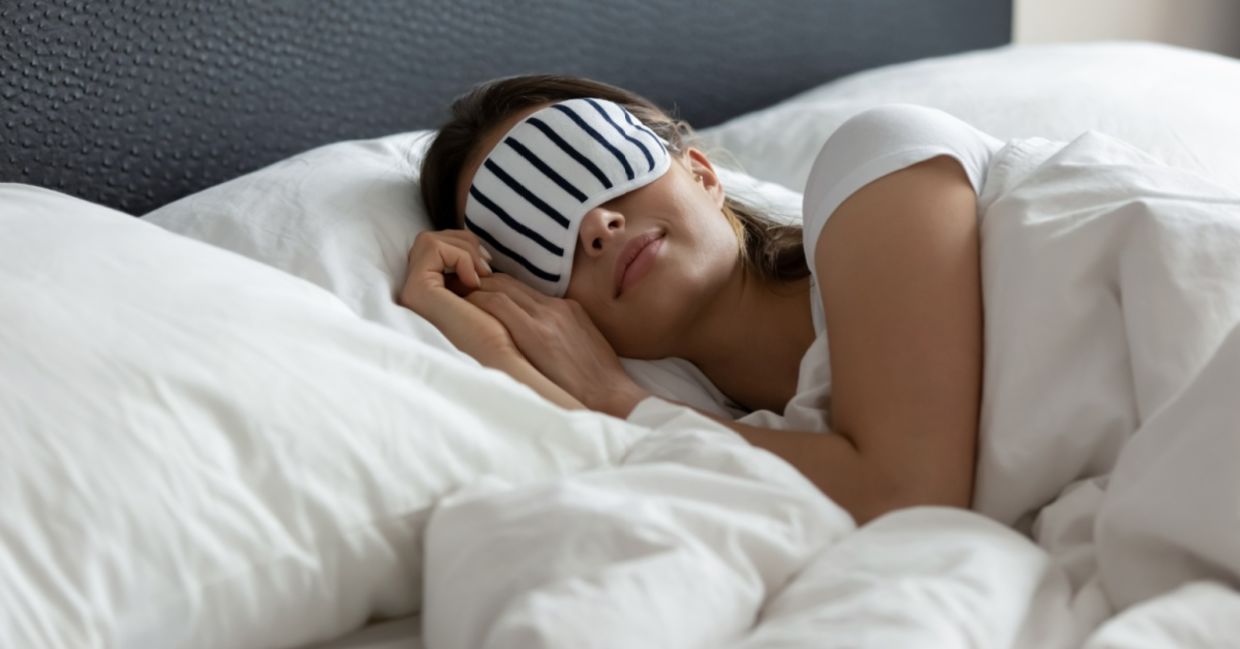
(fizkes / Shutterstock.com)
Gone are the days when catching some Zzs was about collapsing into bed after a long day. Now there is a hot trend called sleepmaxxing and it promises to transform sleep. This movement is more than a social media fad; it puts the spotlight on one of the most fundamental human needs for good health and well-being.
If you have been scrolling through TikTok lately, you may have come across sleepmaxxing, a term that is capturing millions of views worldwide, according to Marie Claire. The goal of this trend is to maximize sleep quality and quantity.
Yet it is more than trying to get the recommended number of sleep hours per night; it is about prioritizing and optimizing sleep. This involves adjusting your habits, environment, and schedule to promote a deeper, healthy sleep.
What Sleepmaxxing Really Means
The approach uses several techniques aimed to improve sleep quality, sleep hours, and sleep efficiency, according to a blog on Saint Alphonsus Health System. Some of these are controlling room temperature, using a sleep tracker, and limiting blue light exposure. The method also focuses on creating consistent sleep schedules and bedtime routines in order to regulate the body's circadian rhythm.
Some sleepmaxxing enthusiasts take this to the extreme by using weighted blankets and white noise machines. The trend can also include anything from blackout blinds and magnesium mocktails to red light bulbs and strict no-screen policies in the evening, explains Marie Caire.
The Many Benefits of a Good Night’s Sleep
Science backs this trend by revealing why sleep optimization deserves attention. In fact, sleep habits could be more important than other lifestyle choices when it comes to longevity and overall health, reports MSN. You might be eating well, working out daily, and cozymaxxing to instill calm, but if you are not sleeping well, it could all be undermined.
Sleep actually plays a big role in detoxing the brain. While in deep sleep, the brain washes itself with cerebrospinal fluid flowing through the brain to clean out waste. And since one of these wastes is connected to Alzheimer's, sleep can even affect how well you age.
Sleep's impact extends far beyond brain maintenance as it could also affect immune responses. While you are in a deep sleep, your immune system produces cytokines that fight off inflammation and infection. In fact, people who consistently get less than six hours of sleep are more prone to catching colds and infections.
A good night’s sleep is also akin to seeing a therapist. Rapid eye movement (REM) sleep has an important part in regulating emotions. It is the time when the brain processes emotionally charged memories and rebalances serotonin and dopamine, neurotransmitters that are related to our mood.
And chronic sleep deprivation can even show up on your face. Those who consistently sleep less than five hours have more fine lines, their pigmentation is uneven, and their skin has less elasticity. This is because the body rebuilds collagen and remedies damage from pollutants, UV, and stress during sleep.
Finding Your Sleep Sweet Spot
While the goal of sleepmaxxing is valuable, experts caution against turning rest into another source of stress, advises Marie Claire. But taken to the extreme, the trend could create pressure around achieving the “perfect” sleep. As everyone knows all too well, forcing sleep can make it even harder to fall asleep. So, the key to incorporating sleepmaxxing into your night-time routine is finding what works for your unique sleep needs rather than following every single tip to a tee.
The popularity of wellness trends such as cozymaxxing and sleepmaxxing are signs that people are seriously embracing self-care. Prioritizing rest and sleep is about giving your body and mind a healthy foundation. Do your research, but don’t stay up too late doing this! Experiment with what works for your lifestyle and remember that consistency often trumps perfection.
YOU MIGHT ALSO LIKE
5 Creative Sleep Hacks to Try
5 Strategies for Returning to Sleep After Waking up at Night
How to Find the Best Sleeping Position, According to Science







